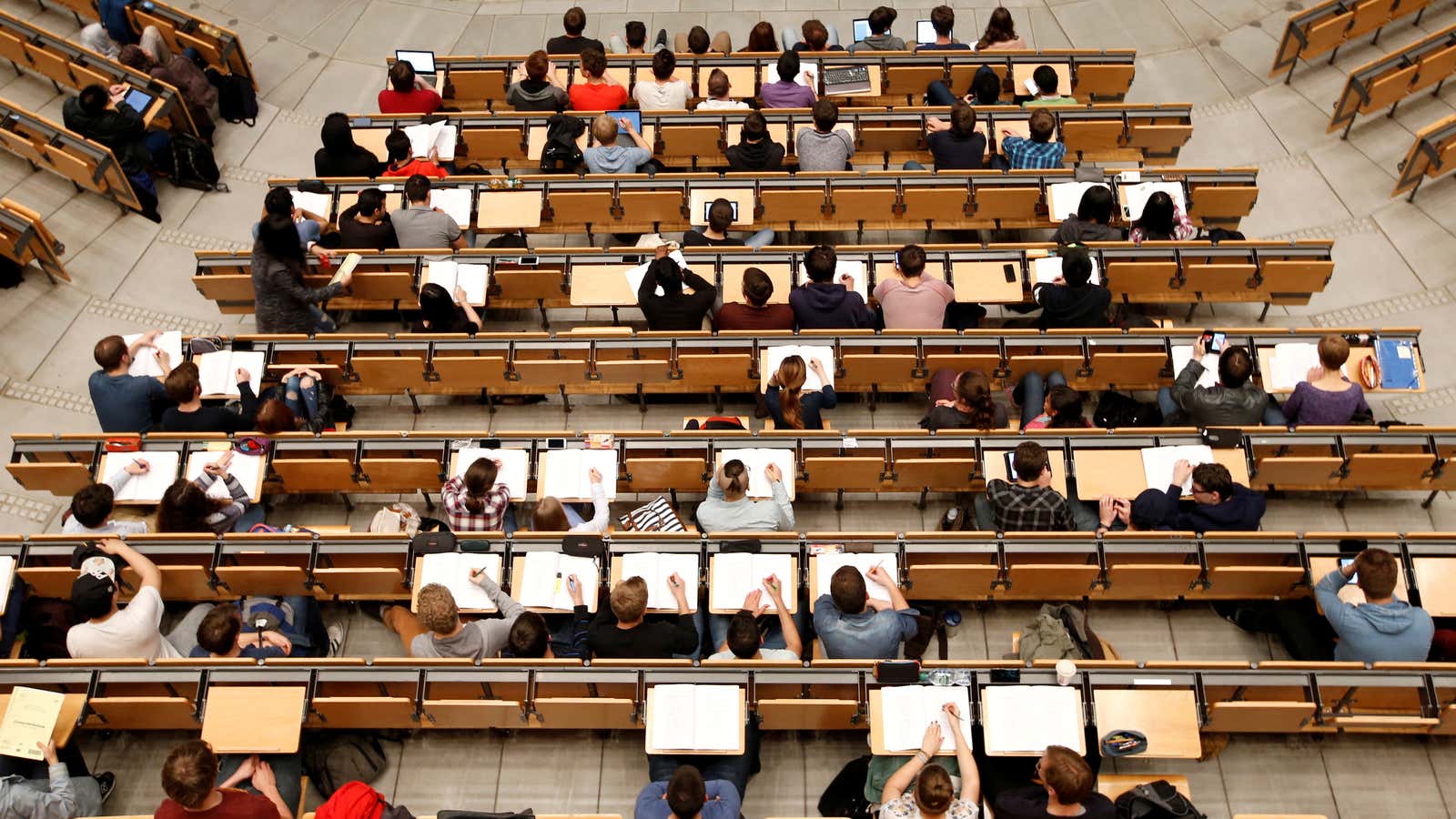“Disconnect” and “misunderstanding” are two words increasingly being bandied about by political scientists and news commentators to describe the state of social affairs in the US. In the era of president Donald Trump, college campuses are one of the clearest examples of the level of division around.
A new study of 706 university presidents from Inside Higher Ed finds that most academic leaders quite keenly understand the chasm between themselves and the American public, too. Nearly 70% of university presidents say they believe that anti-intellectual sentiment is growing in the US; 54% also agree that Trump’s election “exposed that academe is disconnected” from most of the country.
They don’t think the misunderstanding is one-sided, though: The vast majority of university presidents don’t believe most Americans have an accurate view of the purpose of higher education.
The college-focused news publication’s findings cohere with a national educators’ association poll from last year that revealed blatant disagreement amongst parents over the purpose of public education at the elementary- to high-school level. (Is school meant to prepare students to be good workers, citizens, thinkers? No one can really say, it turns out.)
While Trump and new education secretary Betsy DeVos have pledged to offer American students and parents greater variety of schooling choices—such as charter schools and vocational colleges—adding more options to the mix doesn’t exactly solve the troubling lack of agreement over education’s purpose in the first place, or the broader cultural severance that such sentiments reveal.
